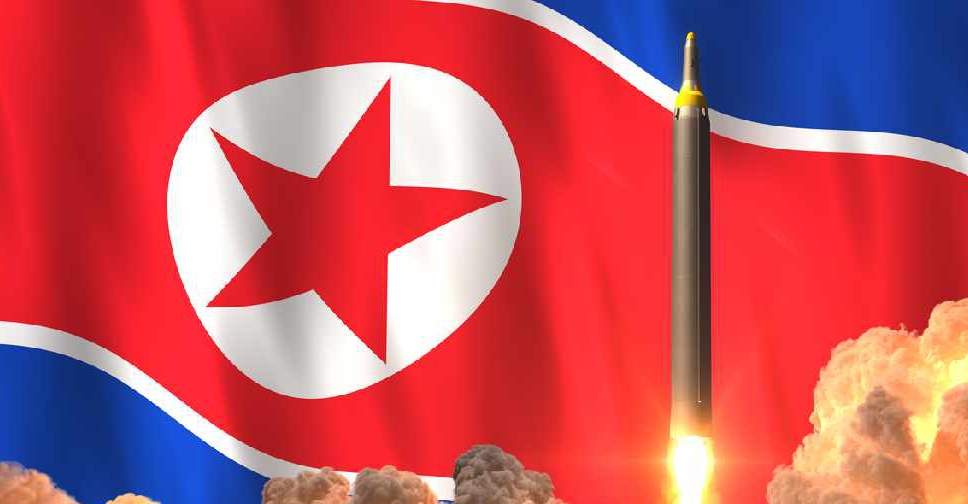
North Korea fired tactical guided missiles on Monday, state media KCNA said on Tuesday, the latest in a series of recent tests that highlighted its evolving missile programmes amid stalled denuclearisation talks.
The missile test was the North's fourth in 2022, with two previous launches involving "hypersonic missiles" capable of high speed and manoeuvring after lift-off, and another test on Friday using a pair of SRBMs fired from train cars. South Korea's military said on Monday that North Korea launched two short-range ballistic missiles (SRBMs) from an airport in its capital, Pyongyang, which flew about 380 km to a maximum altitude of 42 km.
The Academy of Defence Science conducted a test of tactical guided missiles from the country's west, and they "precisely hit an island target" off the east coast, the official KCNA news agency said on Tuesday, without elaborating.
"The test-fire was aimed to selectively evaluate tactical guided missiles being produced and deployed and to verify the accuracy of the weapon system," KCNA said.
It "confirmed the accuracy, security and efficiency of the operation of the weapon system under production".
The unusually rapid sequence of launches has drawn US condemnation and a push for new UN sanctions while Pyongyang warns of stronger actions, raising the spectre of a return to the period of "fire and fury" threats in 2017.
U.S. Special Representative for North Korea Sung Kim urged Pyongyang to "cease its unlawful and destabilising activities" and reopen dialogue, saying he was open to meeting "without preconditions," the State Department said after a call with his South Korean and Japanese counterparts.
South Korea's defence ministry said on Tuesday that it takes all North Korean missile launches as a "direct and serious threat," but its military is capable of detecting and intercepting them.
UN spokesman Stephane Dujarric also called the North's tests "increasingly concerning" during a briefing, calling for all parties to return to talks to defuse tension and promote a "very verifiable denuclearisation of the Korean Peninsula".
'SHOW OF FORCE'
North Korea used the Sunan airport to test-fire the Hwasong-12 intermediate-range ballistic missile (IRBM) in 2017, with leader Kim Jong Un in attendance.
North Korea has not tested its longest-range intercontinental ballistic missiles (ICBMs) or nuclear weapons since 2017, as a flurry of diplomacy with Washington unfolded from 2018. But it began testing a range of new SRBM designs after denuclearisation talks stalled and slipped back into a standoff following a failed summit in 2019.
Kim did not attend the latest test.
A photo released by KCNA showed a missile rising into the sky above a cloud of dust, belching flame.
Kim Dong-yup, a former South Korea Navy officer who teaches at Seoul's Kyungnam University, said North Korea appears to have fired KN-24 SRBMs, which were last tested in March 2020 and flew 410 km to a maximum altitude of 50 km.
The KN-24 resembles the US MGM-140 Army Tactical Missile System (ATACMS) and is designed to evade missile defences and carry out precision strikes, he said.
"The North seems to have already deployed and begun mass production of the KN-24," Kim said, referring to the KCNA report.
"But essentially, the test could be another show of force to underline their recent warning of action."

 Iranian President Raisi killed in helicopter accident, state media says
Iranian President Raisi killed in helicopter accident, state media says
 ICC prosecutor seeks arrest warrants for Israeli, Hamas leaders
ICC prosecutor seeks arrest warrants for Israeli, Hamas leaders
 Assange given permission to appeal against US extradition
Assange given permission to appeal against US extradition
 Israel intends to broaden Rafah sweep, Defence Minister tells US
Israel intends to broaden Rafah sweep, Defence Minister tells US
 New Taiwanese president calls on China to stop threats
New Taiwanese president calls on China to stop threats




